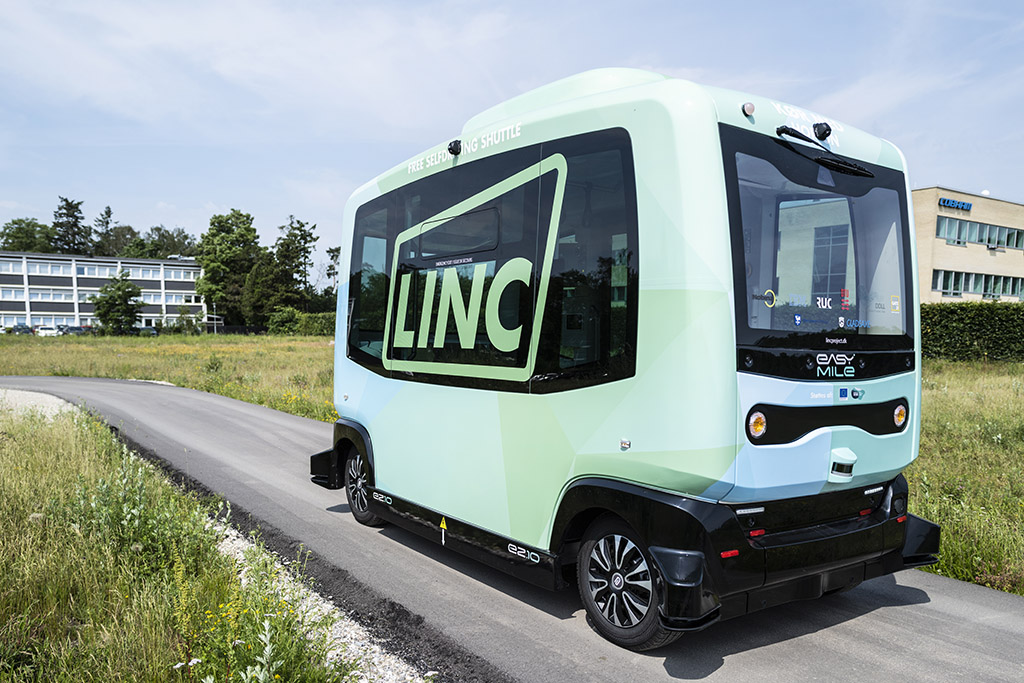
Learn more about what we test
Scroll down to learn more

Scroll down to learn more
During the three-month test at DTU Campus Lyngby, researchers from DTU and Roskilde University (RUC) will explore a number of conditions in and around the three self-driving shuttles. Several research topics have been defined in advance, but because it is a new technology, new topics may arise along the way for researchers to explore. As a test passenger you are free to withdraw from the test at any time, but of course we would like as much input from you as possible. This will give us the best and most reliable results.
Below you will find areas of interest that the researchers have defined in advance, that they will explore. We will elaborate on this during the spring 2020.
The three-month test at DTU Campus is divided into several phases. The vision for self-driving public transport is for the shuttle to arrive when you call – that is, you can order it via an app and it will pick you up from where you are. This is completely different from the way we are used to buses operating today, with fixed routes and stops. But in order to get to that future we must take the development in smaller steps. Therefore, we need to test the shuttle at several stages, where we gradually build up the difficulty levels. The test passengers will first experience Phase 1, where the self-driving shuttles run according to a fixed timetable and fixed stops, like the buses we know today. Later, in the second phase, the shuttle will have a new driving pattern adapted to where larger volumes of passengers move and when – for example around lunchtime. The researchers at RUC and DTU will adapt their studies to each phase.
It is important for the test at DTU Campus that you as a test passenger download the app, because it:
When the app is ready for download in the spring of 2021, you will be asked if you want to turn on GPS tracking. This tracking takes place only at the DTU Campus area and all data is anonymous. Tracking is an important part of the research, because the GPS data will be used for the second phase of the test, where the self-driving shuttles will drive more according to passenger needs and location. The app also allows test passengers to see where the three shuttles are located on campus, when they arrive at the shuttle stop, and the time schedule.
The app is also important to the researchers behind the project as they will use it to send out questionnaires to the test passengers about their experiences with the shuttle.